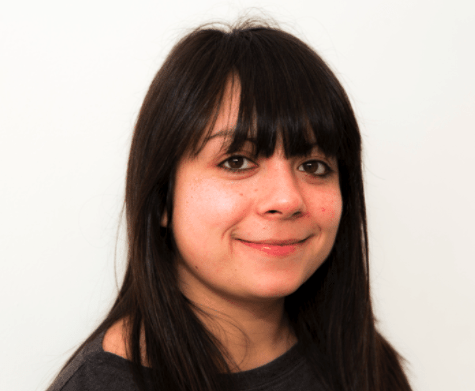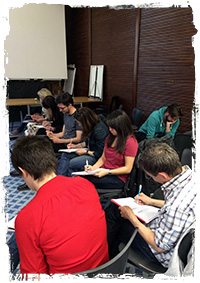Hi Karen, congratulations on passing your viva! How does it feel?!
Great! It took about a week to sink in, people calling me ‘Dr’ helped but it was a strange moment when I was told I had passed. For 3 years the viva was this big scary thing that I was dreading, but in the end I didn’t have anything to worry about, and I think that’s why it was all quite surreal.
What was your PhD title?
The Politics of Expertise in Cultural Labour
Can you explain in a couple of sentences what your PhD was about?
I looked primarily at how cultural workers – people trying to make a living from creative work – develop and signal their aesthetic expertise. By signalling I mean communicating, and I looked at how a group of cultural workers signalled their expertise on social media, through which I developed a new qualitative methodological framework for analysis of expertise on social media. The thesis is essentially a rare interrogation of expertise in cultural work, in the social media age.
Can you sum up your PhD experience in three words?
Rewarding, challenging, transforming.
What was the viva like?
I was expecting a grilling, and to some extent I did get that, but it didn’t feel like a grilling at the time. The examiners and chair were nice and put me at ease straightaway. It was a really good hour or so of just discussing my research in great depth, and an opportunity I might never get again. It was pleasing to hear from people who have read the thesis and confirm to me that it is a worthy piece of work which has made a unique contribution. My external examiner wasn’t physically there, we had to Skype her in, which I was worried about at first but once I got into it I forgot that she was behind a screen. She was asking the questions and I answered them, which is what would happen anyway if she was there in person.
What are your top tips to someone preparing for their viva?
- Make sure you know your thesis inside out. I conferenced and published a lot during the PhD process, and that really helped me in terms of speaking about my work, and knowing my thesis.
- Have a few lines prepared about your thesis, providing an overview and the key arguments.
- During the viva, write down the questions the examiners ask you. It prevents you from launching into a rambling answer, helps you collect your thoughts and if a particularly long or complex question is asked, you can refer back to what you’ve written and answer it properly.
Any advice you’d tell your earlier PhD self now you’ve made it to the other side?
Don’t worry so much about the viva, but that is easier said than done. A bit of nerves beforehand is normal, but it really wasn’t as scary as I thought it would be.
What are you up to now and any exciting plans for the future?
I’ve recently won an AHRC Creative Economy Engagement Fellowship, which I will do here at BCU. I’m doing that part time for 10 months, during which I’m working with the Crafts Council to look at women crafters use of social media, particularly women from culturally diverse backgrounds. I’m aiming to run a couple of workshops with participants as part of this. I’m hoping to use this project as a platform to apply for a longer-term postdoctoral fellowship.
Thanks so much for your time Karen, we wish you all the best for the future!



